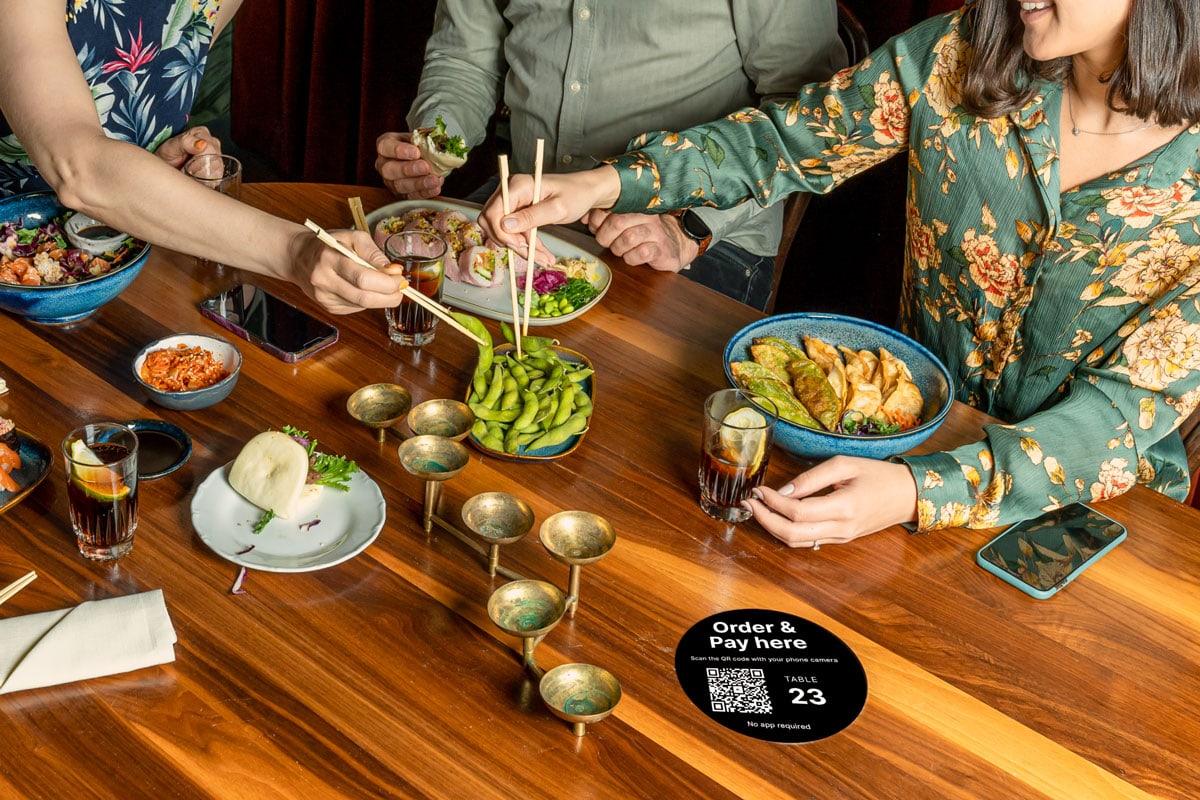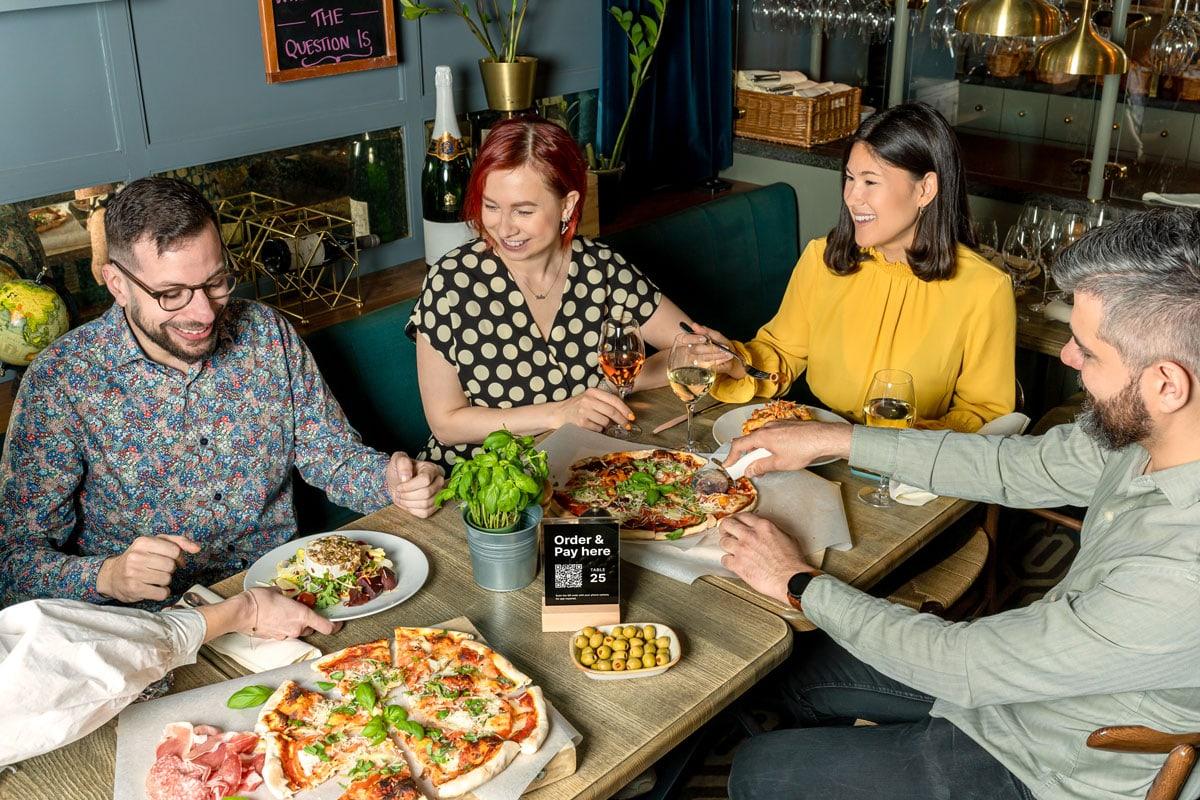Customer stories
Karma's secret recipe: More service, less admin
Discover how Karma helps restaurants minimise the time spent on administrative tasks and enables world-class experiences.

Whether it's high-speed and high-tech, or high-end and high-touch, diners today are increasingly demanding. To meet these demands, there are two key ingredients restaurants should focus on: food and service - not admin.
That's where Karma's web-based platform can help. Order & Pay frees up time by simplifying the ordering and payment process so that restaurants can pour their energy into offering a great customer service.
But that wasn't always the plan.
From saving waste to enhancing experiences
Karma was founded in 2016 and has over two million users on the food saver app, with partners including Coco di Mama, Wrap It Up!, Japan Centrem and Black Sheep Coffee, as well as customers on Order & Pay.
A couple of years ago, Karma's goal was to save restaurant food that had not been sold before the expiry date and then sell on at a favourable price. Now, the product has expanded to offer restaurants a web-based platform where guests can order in a simple, flexible way. Sustainability is embedded into every step, with automatic climate comensation built in.
“With our shift from surplus food delivery to an ordering platform, we became more responsible for restaurant payments," said Koen Brörmann, Product and Engineering Manager at Karma. "This, in turn, placed high demands on a comprehensive payment provider that can meet both ours and the restaurants' needs in an ever-changing industry. Here, Adyen was a clear choice for us.”
Changing the business model involves some speed bumps. Koen shared three current and future challenges that the new business model brings:

1. Payment frequency
Faster payouts to restaurant owners have been central to Adyen's initial mission with Karma, but refunds are also an ever-current issue. With thin margins and liquidity needs, restaurants need access to revenue quickly. The same applies to guests requesting their money back.
2. Reliability
Karma's customers never want to ask themselves, "Will my payment/refund go through?" With Adyen, both Karma and their customers avoid this worry. Karma is currently working on implementing Adyen's drop-in payments to streamline transactions and increase conversion even more.
3. Tokenization
Karma's challenge in the future will be how to make the transaction a minimal part of the interaction.Tokenization- where card details can be encrypted and stored to reduce card usage for future transactions - can help. The dream for Koen is to have bluetooth stations that can charge customers without them having to do anything. The customer simply orders their food and leaves when they like. Karma believes that this can be implemented in the future with Adyen and theAdyen for Platformssolution.
Make payments core to your marketplace or platform
Find out how users can sign up, sell and get paid by checking the end-to-end experience in our guide.
Read guide“Adyen for Platforms has meant that we can make payments on a daily basis,” Koen added. “Unfortunately, it is common for platforms to only have the capacity to make payouts to their users on a monthly basis. In the restaurant industry, this is unsustainable. Margins and liquidity are strained. Therefore, Karma, together with Adyen for Platforms, becomes central to our restaurants being able to pay salaries, subcontractors and invoices. We have signed some customers solely because of the possibility of making daily payments.”
The relationship with Adyen has paved the way for the collaboration's fantastic results. Both parties treat this as a partnership, not a transactional relationship where we are only heard through statistics and reports.
Data and local payment methods: The finishing touches
When Karma started working with Adyen there were two main objectives. On the one hand, Karma wanted to make transactions faster and less noticeable. On the other hand, it wanted to create value for its restaurants by refining the massive amount of data produced through Karma's system. With the help of Adyen for Platforms, thedatacan be gathered in one place.
“I think my team works more in Adyen's system than our own software overall," Koen explained further. "We have our own layer on top of Adyen's solution but we're starting to move away from that, which gives me fewer things to keep track of in my day-to-day work. We are experts in the reality of restaurants first and foremost and do not want to have multiple platforms for handling all the payments that go through us. The relationship with Adyen has also paved the way for the collaboration's fantastic results. Both parties treat this as a partnership, not a transactional relationship where we are only heard through statistics and reports."

Karma currently operates in the UK, Sweden, and France with ambitions to take the business to the rest of Europe. With each new market comes new conditions and challenges. For a company like Karma, where orders and payments are at the core, localpayment methodsbecome an important consideration.
"Relevant payment methods for the consumer are central to everything we do," Koen noted. "The day we started offering Swish through Adyen, Swish simultaneously became our most popular payment method. Adyen for Platforms makes it possible for us to implement a new payment method with a single click."
The future of Karma and Adyen
Karma is still a young company with a long growth journey ahead. It will be present in many new markets, but the vision is the same. In the future, Koen and his team hope that all transactions in the hospitality industry will go through Karma. Step one is to continue delivering a world-class service to diners.
Karma is one of many platforms working with Adyen for Platforms to manage an increasingly complex multi-stakeholder payment flow.
Let's talk
Are you curious about how Adyen can help you take the platform to the next level?
Contact us